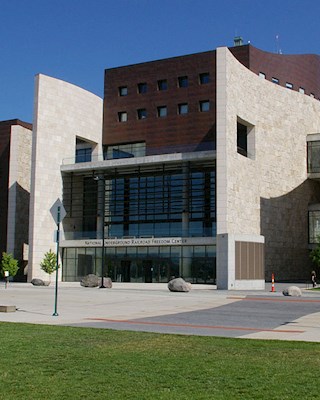Learn About Refugees from Modern Day Enslavement
On Saturday May 11th, the National Underground Railroad Freedom Center will be hosting a Community Conversation about refugees from Mauritania living in Ohio.
This action is on a new page. Don’t forget to come back and tell us if you took this action.

Thank You!
Thank you for completing this action. Head back to the action library to see more ways you can help.
Share this Action
Join us in the Harriet Tubman Theater at the National Underground Railroad Freedom Center for a panel discussion on enslavement in Mauritania.
Mauritania, a country in northwest Africa, was the last country on earth to officially outlaw slavery, doing so in 1981. However, enslavement continues there in defiance of that law. Typically, lighter-skinned Mauritanians enslave their darker-complexioned counterparts as domestic servants and fishermen. The fact that most of the country is comprised of desert makes the 1981 ban on enslavement difficult to enforce. This, plus a series of other human rights abuses targeting the Black Mauritanian population, has compelled many to seek asylum in other countries such as the US.
Mauritanians are fighting against this unjust system, both at home and overseas. Biram Dah Abeid, the child of enslaved Mauritanians, is an activist and politician who has been repeatedly jailed by the Mauritanian government. He was finally released in December of 2018. Meanwhile, many Mauritanians have sought asylum in the United States, including in the state of Ohio. Unfortunately, many have been deported by Immigration and Customs Enforcement back to enslavement, torture and extortion, and potential death.
The discussion will also center on US deportation policy and the impact it has on Mauritanian refugees living here in Ohio. The panel will feature Julie LeMaster of the Immigrant and Refugee Law Center, based in Cincinnati, and Houleye Thiam of the Mauritanian Network for Human Rights in US, based in Columbus, as well as other local activists.
This program is free with general admission and open to the public.
Forms of Abolition:
Awareness
Forms of Slavery:
Domestic Servitude,
Forced Labor

Did you complete this action?
We want to track how many people take this action, so we understand the impact it has on the ground. We share these impacts regularly and always partner with organizations to make sure what you're doing counts.

